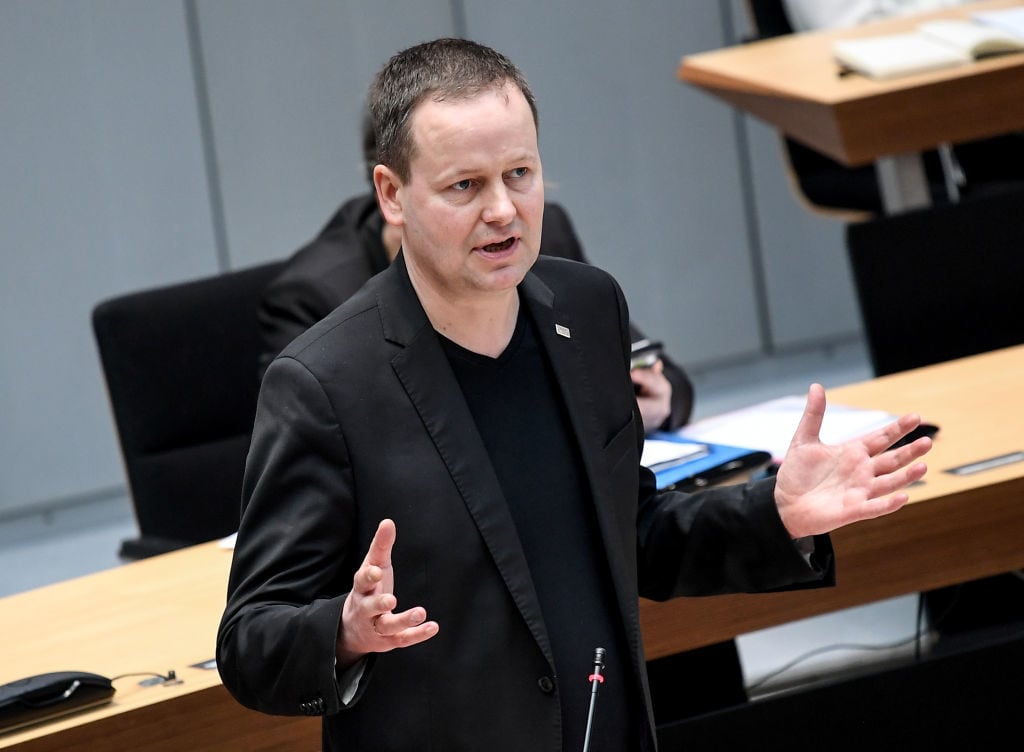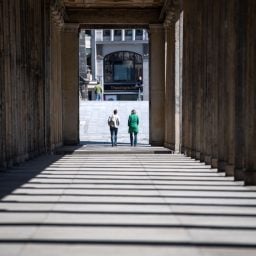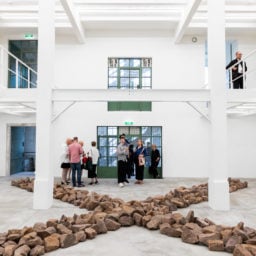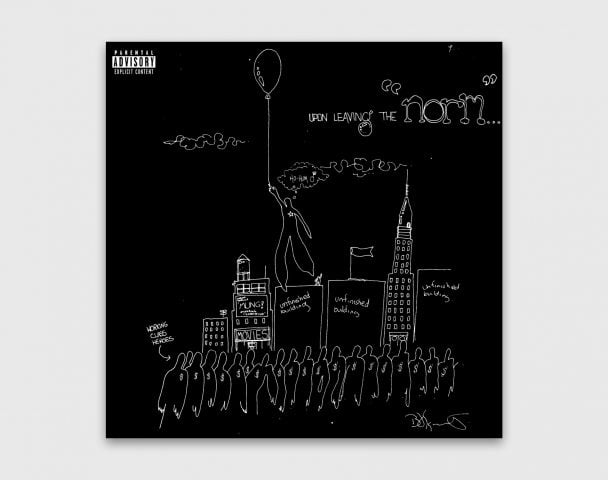Imagine you are a small businessperson or freelancer suffering a deep financial loss as a result of your city’s lockdown. You apply for a grant from the government on a Friday, submitting nothing more than your mailing address, a tax number, banking details, and a legal form with your company’s name. On Tuesday, you wake up to find €5,000 has been wired into your account.
This might sound as if it’s a bureaucratic fever dream—but in Berlin, it is reality. Despite technical difficulties and panic at the outset, the state of Berlin has launched an immensely successful bid to save small businesses and freelancers from financial free-fall, including artists and small cultural businesses who are suffering due to the current global health situation and economic downturn.
The local government acted rapidly to pull together an emergency relief program and, on Friday last week, it launched online grant and bridge loan applications in partnership with the local bank Investitionsbank Berlin (IBB). It is offering €5,000 to individuals freelancers and up to €15,000 to small businesses.
As of yesterday, 50,000 applications had been successfully submitted from creative sectors and other industries, including restaurants, hotels, nightlife, and events businesses. A staggering €500 million has already been given out, according to a spokesperson from the cultural ministry.
“I Am Pleasantly Shocked”
Many Berlin artists reported receiving money within just a day or two of submitting their application. Social media was littered with screenshots of a little green stick figure, seemingly stuck in a perpetual line—the symbol to represent those in the middle of the application process.
“I was number 110,000 in the line,” Berlin-based artist Zuzanna Czebatul told Artnet News on Sunday, adding that she was skeptical about whether the government would keep its word. “But overall the process was satisfyingly uncomplicated.” Today, she confirmed that €5,000 had been deposited into her bank account. “I am pleasantly shocked,” she said.
Berlin’s art community on the whole sounds unequivocally grateful. Berlin’s association of visual artists, bbk berlin, conducted an online survey that revealed that more than half of the city’s artists anticipate losing at least 75 percent of their monthly income due to the lockdown. More than three quarters expressed fears they would not be able to make April’s rent or other basic costs.
More financial assistance is coming as Germany rushes to ensure that its economy is protected from the full blow of a recession. The federal government has announced that it will be delivering a €50 billion bailout package for freelancers and small businesses, including artists. These will be single grants of up to €9,000 available to self-employed artists and businesses with up to five employees, and larger €15,000 grants available to businesses with up to ten employees. They are expected to be ready for applicants in the coming weeks.
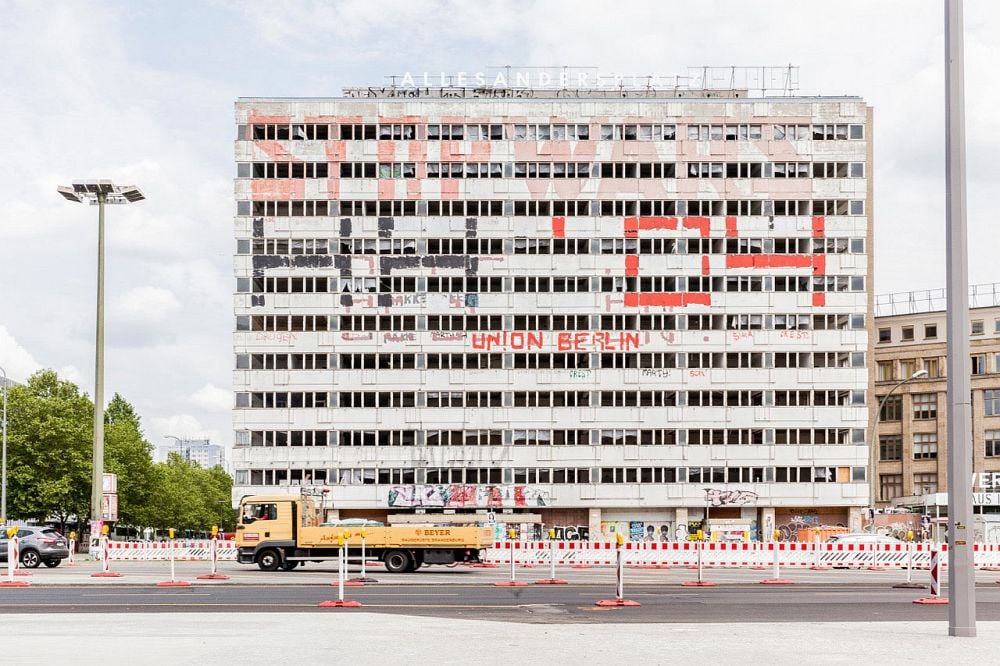
Haus der Statistik during Berlin Art Week 2019. Photo: Victoria Tomaschko.
Crashing the Gates
Several artists Artnet News spoke to described major technical difficulties on the program’s launch day. During the opening hours, the system was so overloaded that it temporarily crashed. The local bank IBB told Der Taggespiegel that 60,000 attempted applications were submitted on the first day; the program is used to handling between 20,000 and 100,000 applications during the entire year.
Faced with wait times of multiple hours, applicants were initially wracked with panic. “When applying on that first day, I had to install an auto-refresh plugin on my browser to continually check until the very second the page went online,” Benjamin Busch, a creative freelancer, told Artnet News. “Information about the application process was sparse right up until it went live. There was a fear that the money would almost immediately disappear.”
The Culture Ministry’s office took to social media to try to quell that worry, saying that the money was not “first come, first serve” in the hopes of slowing the online barrage. “There will be enough for everyone,” culture minister Klaus Lederer wrote to his followers. “Don’t panic! It’s not a greyhound race!”
The panic was somewhat understandable. Germany’s social security system is notoriously bureaucratic and many were concerned the offers sounded too good to be true. Most citizens are all too familiar with the reality of waking up before dawn to line up in the cold at the mayor’s office simply to get one stamp on a form. Those who are not naturalized Germans were also hesitant to apply for funding for fear that state support would throw the standing of their work visas in jeopardy. (The local government has since clarified that this is not the case, though it remains to be seen how the situation will work on the national level.)
It seems that, despite some bumps on the way, the government is transforming itself under the pressure of this crisis and proving to be impressively spry while doing it. And it’s not alone: the Southern state of Bavaria, one of the states hardest hit by the outbreak, has also released a similar package, and Artnet News understands that the western state of Nordrhein-Westfalen is also planning an aid program.
Data Breaches
Still, other concerns remain: there were also some reports of data breaches. According to Der Taggespiegel, a freelance cameraman reported that his data had mistakenly been sent to a stranger. The application process, which required little more than a name and some basic details, is also ripe for fraud, according to a radio report on rbb. The situation seemed to have been resolved by Friday and the IBB tried to quell this concern by saying that any fraudulent claims would be sorted by the time individuals file tax returns—that is, if they do.
But overall, Berliners seem to recognize how extremely fortunate they are. “Our feeling is that the program is working very well right now and that it is addressing the urgent needs of Berlin’s independent artists and creative freelancers,” a spokesman for Lederer’s office said. “Their e-mails and messages, which reach us in large numbers, confirm that the program was necessary and fits the immediate needs of many artists and creative workers in Berlin. It is our absolute aim to preserve the overwhelming richness and variety of Berlin’s cultural life for a vibrant future.”
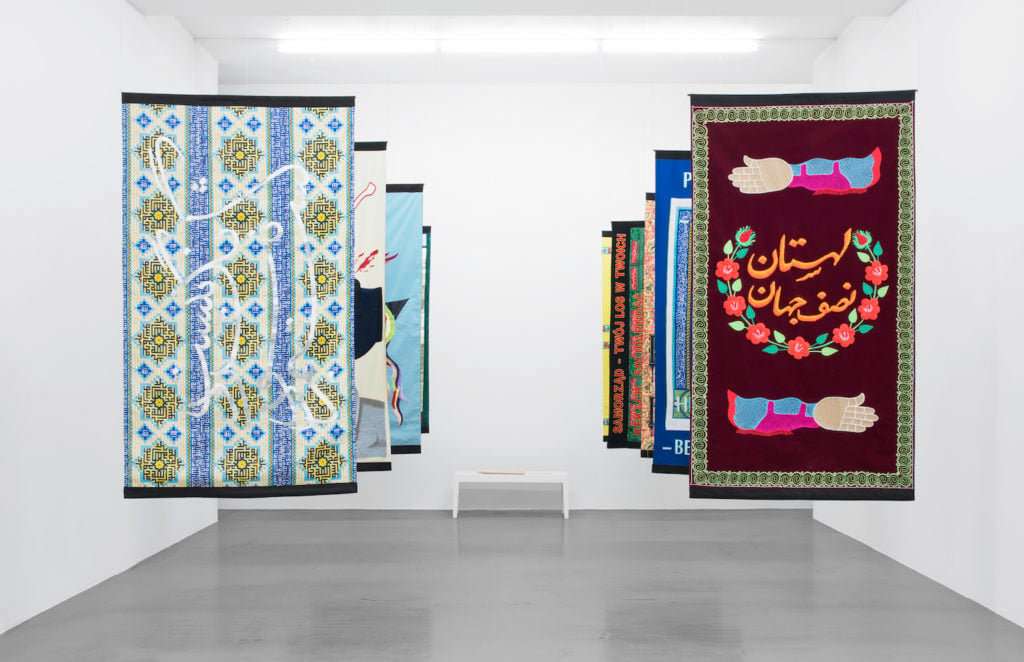
Slavs and Tatars Friendship of Nations: Polish Shi´ite Showbiz, (2011).
After sharing their approved application on Twitter, the art collective Slavs & Tatars told Artnet News that they were “absolutely floored” to see results so quickly. “The waiting takes longer than the actual application, which takes all of 10 minutes,” Slavs & Tatars said in an email. “The very idea of this particular grant is to provide a band-aid, quick, efficient and it proved to be that way.” The collective plans to use the funds, which are due to arrive in their account tomorrow, to keep their studio running—including salaries for their team and production—during the lockdown, even if they may operate at a “reduced rhythm.”
“The fact that this program was undertaken shows us that Berlin knows how important the creative industries are to its economy,” said the art critic Mitch Speed, who applied for an emergency grant this week. He wondered if the rapid grant-making was also an attempt to prevent a rent strike, a measure that has been gaining ground on social media both in Germany and around the world. Regardless, he noted, “it’s a huge privilege to live in a country capable of providing this kind of support.”
